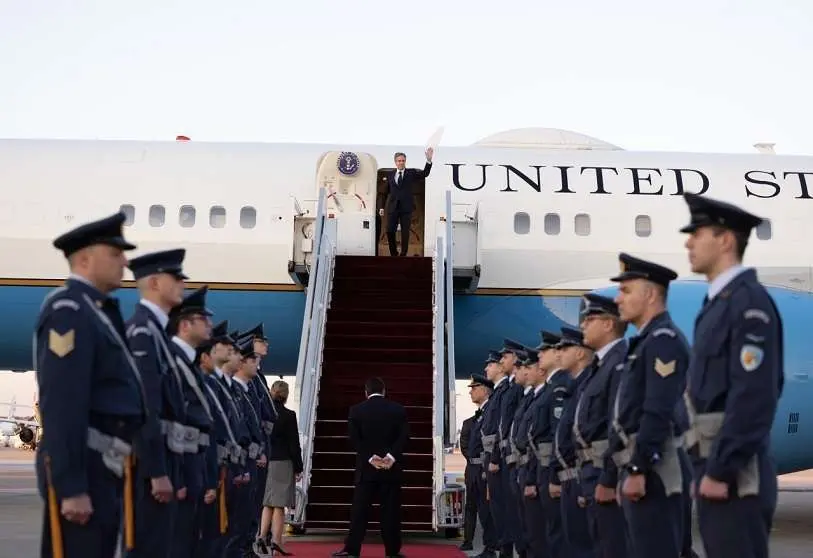US threatens China with punishment for companies and individuals if it sends lethal weapons to Russia

The Biden administration said Tuesday that if China provides lethal weapons to Russia, it will have a serious problem not only with the United States, but with other countries around the world, while warning that it will not hesitate to punish Chinese companies or individuals who violate sanctions or otherwise support Russia's military effort.
"What I can say is that we warned China very clearly about the implications and the consequences of proceeding with the provision of such [lethal] support," Secretary of State Antony Blinken said during a press conference after holding a meeting with five Central Asian countries in the C5+1 format in Astana.
"We will not hesitate, for example, to target Chinese companies or individuals who violate our sanctions or otherwise engage in supporting Russia's war effort," said Blinken, who reiterated that Washington is making these warnings based on "information we have that Beijing is evaluating moving from the non-lethal support that some companies provide to the Russian war effort in Ukraine to lethal material support".

Blinken, who will now travel to Uzbekistan before proceeding to India to participate in the G20 ministerial meeting, emphasised that China cannot be at mass and pealing when it comes to Russia's aggression in Ukraine. "It cannot put forward peace proposals on the one hand while feeding the flames of the fire that Russia started on the other. I hope China takes what we said very seriously," he insisted.
The US diplomacy chief argued that if China takes the step of sending lethal material to Russia it "would not only be a serious problem for China's relations with us, but also a serious problem for its ties with countries around the world". Blinken has heard this from other partners with whom he has discussed US concerns and has conveyed the potential consequences directly to his Chinese counterpart, Wang Yi, during their meeting at the Munich Security Conference.
Russian President Vladimir Putin on Tuesday announced the suspension of Russia's participation in START III or New START, the last nuclear disarmament treaty still in force with the United States. The corresponding information was published on Russia's official legal information portal, bringing the decision into force.
The move, announced by the Kremlin leader in his state of the nation address on 21 February, was previously approved by both houses of the Russian parliament. Putin announced in his message that Russia was forced to freeze its participation in the treaty because of Western policy. According to the new law, it will be up to the head of the Kremlin to decide in the future whether Moscow will return to fulfilling its obligations under the arms control treaty.

Russian Deputy Foreign Minister Sergey Riabkov said last week that suspending the treaty was a "difficult decision" but "the only correct one". "In these conditions, it is impossible to interact (with the US) as before in such a key and important area as arms control," he said.
Meanwhile, Russia's ambassador to the US, Anatoli Antonov, blamed Washington for systematically failing to meet its obligations under the treaty, which also led to its suspension. The State Department reported this week that it had not yet received official notification of the suspension of New START.
New START was signed in Prague on 8 April 2010 by then US President Barack Obama and Russian President Dmitry Medvedev. The treaty limited the number of strategic nuclear weapons, with a maximum of 1,550 nuclear warheads and 700 ballistic systems for each of the two powers on land, at sea or in the air.








